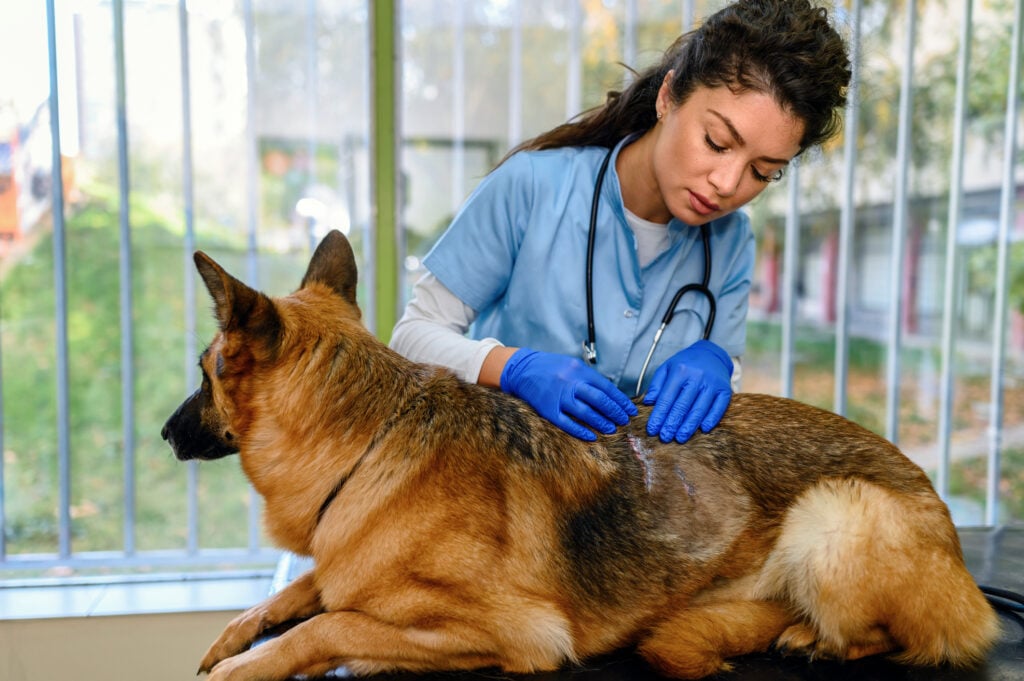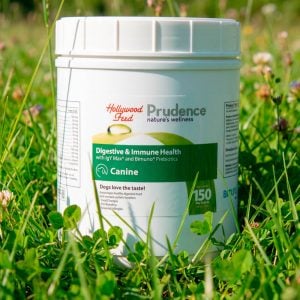How Do I Know If My Dog Has an Allergy?
Is your dog constantly scratching, licking, or having digestive issues? You might be dealing with a dog allergy. Allergies in dogs are more common than many pet parents realize—and they can show up in a variety of ways, from skin irritation to upset stomachs.
In this guide, we’ll explore how to recognize the signs of allergies in dogs, what causes them, and how you can help your pup feel better with the right treatment and care.
Common Signs of Allergies in Dogs
Dogs can’t tell us when something is wrong, but they can show us through behavior and physical symptoms. Here are the most common signs that your dog may be experiencing an allergy:
Skin & Coat Symptoms
-
Itchy skin (especially paws, ears, belly, or face)
-
Constant scratching or biting
-
Red, inflamed, or dry patches
-
Chronic ear infections
-
Excessive licking or chewing
-
Hair loss or bald spots
Digestive Symptoms
-
Vomiting
-
Diarrhea or loose stools
-
Gas or bloating
-
Frequent scooting
Respiratory Symptoms
-
Sneezing
-
Coughing
-
Watery eyes
-
Runny nose
These symptoms often overlap with other conditions, so it’s important to work with your vet to confirm whether allergies are the cause.
Types of Allergies in Dogs

Allergies in dogs typically fall into one of three categories: environmental, food, or flea-related. Understanding the type can help determine the best course of action.
1. Environmental Allergies (Atopic Dermatitis)
Environmental allergens include:
-
Pollen (grass, trees, weeds)
-
Mold spores
-
Dust mites
-
Cleaning products or fragrances
Dogs with environmental allergies usually show signs seasonally (spring and fall), though some symptoms can persist year-round.
Typical signs: itchy paws, face rubbing, sneezing, red eyes, ear infections.
2. Food Allergies
Food allergies or intolerances develop when your dog’s immune system reacts to an ingredient in their diet. Common triggers include:
-
Chicken
-
Beef
-
Dairy
-
Wheat
-
Soy
-
Eggs
Typical signs: itchy skin, chronic ear infections, vomiting, diarrhea, or poor coat condition.
Note: Food allergies often get confused with food sensitivities. Only a true allergy triggers an immune response.
3. Flea Allergy Dermatitis (FAD)
Some dogs are allergic to flea saliva—not just flea bites. Even a single flea can cause intense itching, redness, and discomfort.
Typical signs: intense itching at the tail base, scabs, hair loss.
Preventative flea and tick care is crucial to managing this type of allergy.
How Are Dog Allergies Diagnosed?

Your veterinarian may use several methods to identify allergies, including:
-
Physical exam and symptom review
-
Skin scrapings or cytology to check for infections
-
Elimination diet trials for suspected food allergies
-
Blood tests or intradermal skin tests for environmental triggers
You may be asked to switch your dog’s food or keep a journal of symptoms during different seasons or after using specific products.
What To Do If You Think Your Dog Has an Allergy
If you notice any of the symptoms listed above, the first step is a visit to your veterinarian. From there, you can work together to create a care plan based on the type of allergy.
Treatment Options:
-
Hypoallergenic or limited-ingredient diets (for food allergies)
-
Antihistamines or allergy medications (like Apoquel or Cytopoint)
-
Flea prevention treatments
-
Medicated shampoos or topical ointments
-
Air purifiers and frequent cleaning (for environmental allergens)
Natural Support:
-
Omega-3 fatty acids (support skin health and reduce inflammation)
-
Probiotics (improve gut health)
-
Supplements like quercetin or colostrum (for immune system support)
Hollywood Feed offers a variety of hypoallergenic foods, flea preventatives, skin supplements, and vet-recommended grooming products to support your dog’s allergy care.
*Try Progility Dog Chews – Allergy Relief
Preventing Future Allergies

While some allergies are genetic or chronic, many symptoms can be managed through proactive care:
-
Keep your dog’s living space clean and free of dust or mold
-
Bathe your dog regularly with gentle, anti-itch shampoos
-
Use flea prevention year-round
-
Feed a high-quality diet free of common allergens
-
Wash food and water bowls often
-
Avoid strongly scented cleaning products or air fresheners
Recap: Signs Your Dog Has an Allergy
-
Excessive itching, licking, or scratching
-
Chronic ear infections or red, inflamed skin
-
Vomiting or diarrhea
-
Sneezing, coughing, or watery eyes
-
Hair loss or bald spots
-
Frequent scooting or licking paws
Frequently Asked Questions About Dog Allergies
Q: Can dogs develop allergies later in life?
A: Yes. Dogs can develop allergies at any age, even if they’ve been eating the same food or living in the same environment for years.
Q: What’s the best dog food for allergies?
A: Limited-ingredient or hypoallergenic foods with novel proteins (like duck or venison) are often recommended. Try brands like Farmina, Canidae PURE, or Zignature, available at Hollywood Feed.
Q: How long does it take to see improvement with a new food?
A: Most food elimination trials last 8–12 weeks. Symptoms may begin to improve within a few weeks if the allergy trigger is removed.
Q: Can I treat dog allergies at home?
A: Mild symptoms may improve with diet changes, supplements, or medicated baths—but always consult your vet for ongoing or severe symptoms.
Q: Are dog allergies curable?
A: Not usually, but they can be effectively managed with the right care and products.
If your dog is showing signs of allergies, don’t wait. With proper diagnosis and care, you can help your pup live more comfortably. Visit your local Hollywood Feed store or browse online for allergy-friendly foods, supplements, and vet-trusted solutions today.
To Learn More Check Out This Hollywood Feed Education Class on Pet Allergy Awareness








